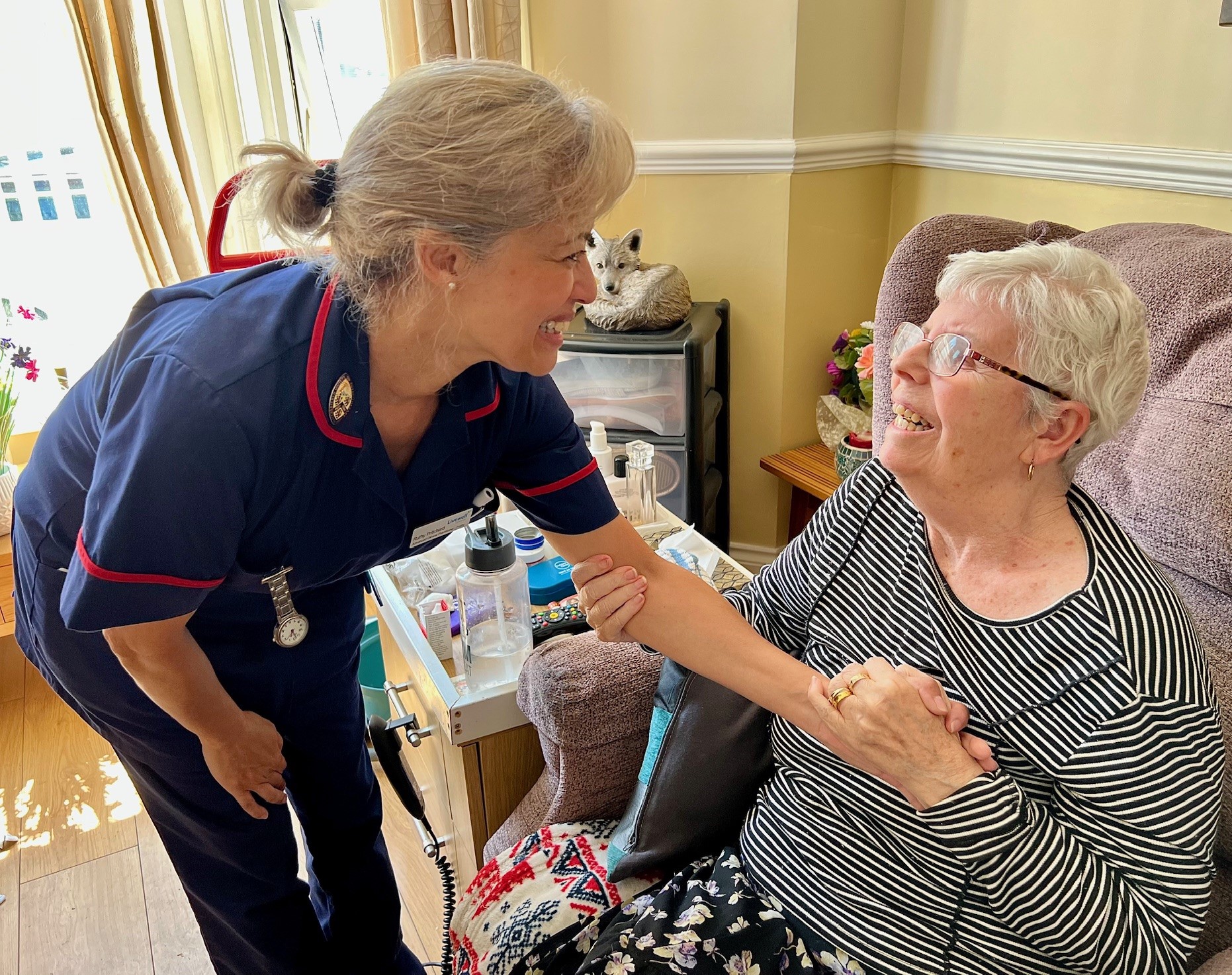When Rod and Barbara made their wedding vows to each other in 1964 they really meant it.

Rod and Barbara’s wedding in 1964
Barbara has a neurological condition called Progressive Supranuclear Palsy and needs round the clock support. 83-year-old Rod is her main carer. Their wish is to stay together in their terraced house in Plymouth.

“Without me, Barbara would have to go into a care home and that would be the end. I’ll do anything rather than have her put in a home or a hospital. She has only got to be away from me for two days and she is absolutely stricken with fear that she isn’t going to see me again.”
The couple are able to stay at home with the support of a Multi-Disciplinary Team which meets once a week. The team is made up of health professionals such as GPs, community nurses from Livewell Southwest, social workers and voluntary care organisations. Together, they create a care plan for older people who are diagnosed as being frail but wish to remain independent and have ongoing care in their own home.
Patients like Rod and Barbara have had what is called a Comprehensive Geriatric Assessment (CGA). This looks at all their needs to support them – anything from medication or adaptations to their home, right through to getting carers to help get Barbara dressed in the morning whilst Rod does household chores like cooking and cleaning.
Ruthy Pritchard is an Advanced Clinical Practitioner (in Frailty and Complex Care) at Livewell Southwest and visits the couple at home.

Ruthy Pritchard and Barbara at a home visit
Ruthy said: “When I first met them, they didn’t have a package of care and had been managing by themselves. It was very clear that Barbara’s ultimate goal is to stay at home with her husband. That is what is important to her.
“The beauty of a CGA is that it is in a true holistic manner. You look at all the patient’s domains of care to help with both physical and emotional wellbeing. For example, Barbara had trouble swallowing, so I arranged for a speech and language therapist to visit. We worked together to support her and Rod with the new techniques to improve things.”
Ruthy also reviewed Rod’s medication. “If Rod had fallen over and broken a hip because he was taking too much of an anti-hypertension medication, he probably would have ended up in hospital for a week and then needed rehab for two weeks. He wouldn’t have been able to look after Barbara and she would have ended up in care.”
Supporting patients in the community is reducing the number of times older people need to go into hospital for treatment.
Dr. David Attwood is a GP at Pathfields Surgery and Associate Medical Director at Livewell Southwest. He said: “You don’t wait for the cambelt on your car to break. You take it for an MoT and get it serviced regularly. It is the same for the human body. If you keep people well and you make sure their mental health, their physical health, their wellbeing and their independence is all addressed simultaneously, they don’t get so unwell. They are less likely to need to speak to their GP which improves primary care workload. They are less likely to become so unwell they need the support of a hospital admission.
“Whilst ageing can’t be prevented, there are interventions to help with frailty which are proven to improving health and allowing older people to live better and for longer.”
In Plymouth, there are an estimated 16,000 frail patients, of which 8,100 have been identified and diagnosed as having mild, moderate or severe frailty. 783 of these known patients have a severe frailty diagnosis.


